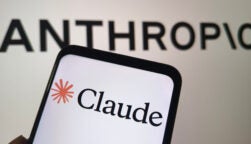Google has allegedly been mis-selling video ads for the last three years, costing advertisers billions in wasted ad spend.
A study has found that Google’s TrueView skippable video ads, which are supposed to appear on third party websites, are failing to do so and are violating its own standards approximately 80% of the time.
The study was carried out by Adalytics, a crowd-sourced social experiment company which aims to improve how the internet advertises with a browser extension that logs, categorizes, and summarizes its user’s ads. So, did Google violate their advertising standards and mis-sell TrueView ads?
How Does TrueView Work?
Google’s TrueView video ad product works by displaying ads on YouTube (Google’s proprietary video platform) as well as on third party partner sites and apps and is purchased via a program called Google Video Partners.
The video ads are skippable after five seconds, but advertisers only pay once a user watches 30 seconds (or the full video if it’s shorter than 30 seconds).
Google also promises that these premium ads will benefit from high-quality placements, they will only play after user initiation, and they must be played with audio on. The price tag for showing ads once all of these conditions are met is high as it indicates the user is highly engaged with their ad.
What Did the Study Find?
The Adalytics study found that some ads have breached the product description in four key areas:
- Ads played without audio.
- Ads have been placed in low-value positions on the web page.
- Ads automatically played without user initiation.
- Ads were placed on websites which don’t meet Google’s own standards for monetization.
Adalytics said the ads often appear on lower-quality websites, such as those with misinformation or pirated content, and that they can be positioned in small video players on the side or bottom of the screen, away from the main “in-stream” content.
The report claims that there were instances of the ads running without audio, auto-playing without the viewer engaging with them, and sometimes the skip button that typically appears after five seconds was obscured, forcing viewers to watch the whole ad.
Google Refutes the Ad Fraud Claims
Google has reportedly denied the “extremely inaccurate claims” from Adalytics that they have misled TrueView advertising customers and not delivered on what they paid for.
Marvin Renaud, Google’s Director of Global Video Solutions, issued a statement to deny the claims on the Google Ads & Commerce Blog shortly after the Adalytics report was published.
“The report wrongly implies that most campaign spend runs on GVP rather than YouTube. That’s just not right. The overwhelming majority of video ad campaigns serve on YouTube. Google rigorously enforces policies that prohibit third-party sites from using deceptive or disruptive techniques to generate advertising revenue, such as placing ads in hidden browser windows. Renaud added that, last year, Google stopped running ads on more than 143,000 websites it deemed to violate its rules.”
Who Is Affected?
A wide range of businesses use the Google TrueView advertising product. That means that many have been affected by this potential breach of standards, including small businesses, Fortune 500 companies and even the U.S. Federal Government, leading to multiple marketers expressing regret over purchasing this product and wasting ad spend on alleged “ad fraud.”




